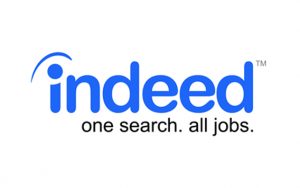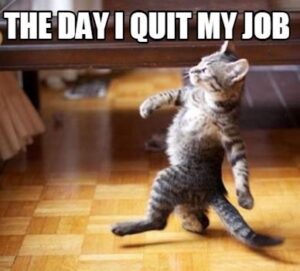 Now every applicant knows that when an organization posts a job online they include a title, position description, required skills and then some verbiage about being an equal opportunity employer and a few words about their compensation and benefits package.
Now every applicant knows that when an organization posts a job online they include a title, position description, required skills and then some verbiage about being an equal opportunity employer and a few words about their compensation and benefits package.
What you don’t often see are the keywords the recruiter uses to make sure that the posting winds up in the right searches done by applicants and will be used as part of the connect the dots algorithms used by their applicant tracking system to determine which resumes actually get past the ATS and into the inbox of a real live recruiter who will then spend 20 to 30 seconds scanning each resume until people are selected to be interviewed.
Some of the people with whom I’ve worked are frustrated by the job boards because they seem so indiscriminate in which jobs wind up in the person’s search. “How on earth did this nursing supervisor job show up when I’m looking for an Asset Manager position in a bank? These job boards stink! They’ll just throw anything at you and hope you’ll apply. They’re a waste of my time!”

I understand the frustration, I really do, but it’s not always the job site’s fault. People choose the keywords that will be used to make a match between posting and applicant, and sometimes this is done in a very slipshod, scattershot manner.
Below is an example of one I just found. These are the keywords that a recruiter used to attract applicants for an entry-level position in the marketing department. As you can see the recruiter included just about everything short of “must have a pulse.” They did include “Executive Vice President” and “HS graduate.” I will grant you that most EVP’s have graduated high school, but this is the reason many of your search results are filled with inappropriate postings. It’s because some recruiters aren’t doing their jobs well enough to properly serve their organizations by developing a list of keywords truly reflective of the kind of person they seek. It’s easier to just slug in this all-inclusive “must be able to enter the building without getting trapped in revolving door” list they developed and possibly use for every job they post.
The upshot is then I hear from recruiters that they aren’t getting the right stream of candidates in their pipeline and it’s so hard to fill positions. This is probably one more reason that LinkedIn is becoming so much more popular as a source.
The final irony is that the list below came from a posting from a management consulting firm. Grab a cup of coffee or tea and sit back if you plan to read through the entire list. And please share your comments, frustrations or horror stories. We need to do something to halt this spreading epidemic of sloppy recruiting.
Only the best,
Ron human resources, recruiting, entry level assistant, marketing, sales, entry level marketing, marketing management, director of sales, director of sales promos, director of sales promotions, distribution sales manager, district sales manager, field rep, sales rep, marketing rep, field representative, field sales engineer, floor supervisor, independent consultant, inside sales, inside sales rep, inside sales representative, international sales account manager, internet sales manager, major, account exec, marketing and sales account executive, marketing account manager, major account rep, major, account representative, manufacturers rep, manufacturers sales representative, market research, marketing, medical sales, merchandize manager, national account manager, national sales manager, national sales rep, national sales representative, point of sale supervisor, product sales manager, quote clerk, regional sales manager, sales & marketing, sales & marketing admin, sales & marketing administrator. sales & marketing director, sales & marketing manager, sales account manager, sales administrator, sales analyst, sales and marketing, sales and marketing admin, entry level, sales, marketing, customer service, advertising, clients, sports, , sports marketing, full time, part time, internships, interns, college, sports, restaurant, hospitality, retail, cashier, server, promotional sales, public relations, client relations, clients, advertising, restaurant, mass communications, business administration, recruiter, internships, interns, college graduates, retail, sales, promotional sales, other. marketing, events, promotions, sales, customer service, public relations, retail restaurant, account executive, account exec, account representative, account rep, account manager, account management, sales rep, sales representative, sales exec, sales executive, field sales, ad sales, marketing sales, promotional sales, publishing sales, mortgage sales, loan sales, loan officer, inside sales, outside sales, direct sales, sales professional, sales associate, telemarketing, cold caller, cold calling, salesman, saleswoman, salesperson Marketing, Promotions, Sports, , Sales, Customer Service, Public Relations, Human Resources, Entry Level, Career Builder related words: Sales, Customer Service, Manager, Management, Manage, Marketing, Management, Administrative, Administrative Assistant, Human Resources, Receptionist, Entry Level, , Customer Service, Assistant, Advertising, Supervisor, Public Relations, Office, Payroll, Admin, Training, Human Resources, Operations, Office Manager, General, Executive, Vice President, Sales, Manager, All, Recruiter, Entrepreneur, PR, P.R., Advertising, C Marketing Management, Entry Level Management, Entry-Level Management, Entry Level Sales, Entry-Level Sales, Entry Level Marketing, Entry-Level Marketing, Entry Level College Grad, Entry-Level College Grad Training, General, Sales, Manager, All, Recruiter, Entrepreneur, PR, P.R., Advertising, Inventory, Internship, Entry-Level, College Graduate, College Grad, High School Graduate, High-School Graduate, High School Grad, Marketing Management, Entry Level Management, Entry-Level Management, Entry Level Sales, Entry-Level Sales, Entry Level Marketing, Entry-Level Marketing, Entry Level College Grad, Entry-Level College Graduate Sales techniques Leading, coaching & motivating Business administration Human resource management Public relations Finance Advertising Public speaking Restaurant, retail, hotel experience, retail management, hospitality degree, hospitality experience, resort, hotel, motel management, server, hostess, host, cook, front of the house, back of the house experience, waitress, waiter, serving customers, retail sales associate, retail account manager, retail manager, retail assistant manager, hotel manager, hotel assistant manager, restaurant supervisor, restaurant assistant manager, restaurant manager, food industry, wine representative, restaurant owner, part time retail, part time hotel, valet, valet supervisor, valet manager Entry level sales Entry level sales person Entry level sales rep Outside sales Entry level outside sales rep Outside sales rep Sales and marketing Team player Sales Entry level sales and mktg Sports-oriented Help wanted New grad Part-time Full-time business experience, business administration, small business administration, degree business administration, master business administration, management business administration, business administration bachelor, office business, small business, business restaurant, marketing business, international business, business sales development, management small business, global business, business sales marketing, marketing management business, marketing business opportunity, marketing business development, marketing advertising business, business in New Jersey, New Jersey businesses, business management skills, business manager, professional development, business to business management, business development manager career, business consulting manager, management, entrepreneur, entry level management, supervisor, coach, leader, consultant, consulting for businesses, management consulting, supervising businesses, business and communication management, Customer care, sales, entry level sales, customer relations, customer acquisition, customer conversion, customer response, customer renewal, customer retention, customer research, customer response, customer effectiveness, face to face service to customers, customer satisfaction, restaurant management, restaurant service, marketing and sales, services in hospitality, customer service evaluation, customer loyalty, customer service advisor, customer service analyst, customer service associate, customer service consultant, customer relationship advisor, customer relationship management, marketing research, marketing programs, promotional marketing, marketing management, businesspeople
human resources, recruiting, entry level assistant, marketing, sales, entry level marketing, marketing management, director of sales, director of sales promos, director of sales promotions, distribution sales manager, district sales manager, field rep, sales rep, marketing rep, field representative, field sales engineer, floor supervisor, independent consultant, inside sales, inside sales rep, inside sales representative, international sales account manager, internet sales manager, major, account exec, marketing and sales account executive, marketing account manager, major account rep, major, account representative, manufacturers rep, manufacturers sales representative, market research, marketing, medical sales, merchandize manager, national account manager, national sales manager, national sales rep, national sales representative, point of sale supervisor, product sales manager, quote clerk, regional sales manager, sales & marketing, sales & marketing admin, sales & marketing administrator. sales & marketing director, sales & marketing manager, sales account manager, sales administrator, sales analyst, sales and marketing, sales and marketing admin, entry level, sales, marketing, customer service, advertising, clients, sports, , sports marketing, full time, part time, internships, interns, college, sports, restaurant, hospitality, retail, cashier, server, promotional sales, public relations, client relations, clients, advertising, restaurant, mass communications, business administration, recruiter, internships, interns, college graduates, retail, sales, promotional sales, other. marketing, events, promotions, sales, customer service, public relations, retail restaurant, account executive, account exec, account representative, account rep, account manager, account management, sales rep, sales representative, sales exec, sales executive, field sales, ad sales, marketing sales, promotional sales, publishing sales, mortgage sales, loan sales, loan officer, inside sales, outside sales, direct sales, sales professional, sales associate, telemarketing, cold caller, cold calling, salesman, saleswoman, salesperson Marketing, Promotions, Sports, , Sales, Customer Service, Public Relations, Human Resources, Entry Level, Career Builder related words: Sales, Customer Service, Manager, Management, Manage, Marketing, Management, Administrative, Administrative Assistant, Human Resources, Receptionist, Entry Level, , Customer Service, Assistant, Advertising, Supervisor, Public Relations, Office, Payroll, Admin, Training, Human Resources, Operations, Office Manager, General, Executive, Vice President, Sales, Manager, All, Recruiter, Entrepreneur, PR, P.R., Advertising, C Marketing Management, Entry Level Management, Entry-Level Management, Entry Level Sales, Entry-Level Sales, Entry Level Marketing, Entry-Level Marketing, Entry Level College Grad, Entry-Level College Grad Training, General, Sales, Manager, All, Recruiter, Entrepreneur, PR, P.R., Advertising, Inventory, Internship, Entry-Level, College Graduate, College Grad, High School Graduate, High-School Graduate, High School Grad, Marketing Management, Entry Level Management, Entry-Level Management, Entry Level Sales, Entry-Level Sales, Entry Level Marketing, Entry-Level Marketing, Entry Level College Grad, Entry-Level College Graduate Sales techniques Leading, coaching & motivating Business administration Human resource management Public relations Finance Advertising Public speaking Restaurant, retail, hotel experience, retail management, hospitality degree, hospitality experience, resort, hotel, motel management, server, hostess, host, cook, front of the house, back of the house experience, waitress, waiter, serving customers, retail sales associate, retail account manager, retail manager, retail assistant manager, hotel manager, hotel assistant manager, restaurant supervisor, restaurant assistant manager, restaurant manager, food industry, wine representative, restaurant owner, part time retail, part time hotel, valet, valet supervisor, valet manager Entry level sales Entry level sales person Entry level sales rep Outside sales Entry level outside sales rep Outside sales rep Sales and marketing Team player Sales Entry level sales and mktg Sports-oriented Help wanted New grad Part-time Full-time business experience, business administration, small business administration, degree business administration, master business administration, management business administration, business administration bachelor, office business, small business, business restaurant, marketing business, international business, business sales development, management small business, global business, business sales marketing, marketing management business, marketing business opportunity, marketing business development, marketing advertising business, business in New Jersey, New Jersey businesses, business management skills, business manager, professional development, business to business management, business development manager career, business consulting manager, management, entrepreneur, entry level management, supervisor, coach, leader, consultant, consulting for businesses, management consulting, supervising businesses, business and communication management, Customer care, sales, entry level sales, customer relations, customer acquisition, customer conversion, customer response, customer renewal, customer retention, customer research, customer response, customer effectiveness, face to face service to customers, customer satisfaction, restaurant management, restaurant service, marketing and sales, services in hospitality, customer service evaluation, customer loyalty, customer service advisor, customer service analyst, customer service associate, customer service consultant, customer relationship advisor, customer relationship management, marketing research, marketing programs, promotional marketing, marketing management, businesspeople



















